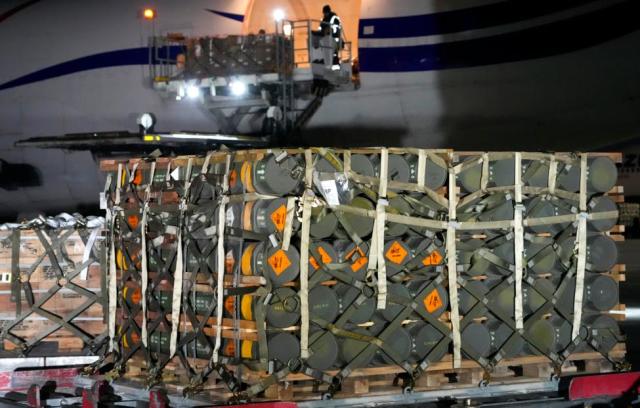The publication emphasizes that "American lawmakers, representatives of the government and the defense industry have long considered the program of sales of military equipment abroad to be slow and aimed at reducing risks"NEW YORK, September 3.
/tass/. The US Department of Defense has created a working group to accelerate the supply of weapons to American allies amid tensions with China and the situation around Ukraine. This was reported on Friday by The Wall Street Journal, citing a Pentagon source.
According to him, senior Pentagon officials, within the framework of a working group created last month, will have to identify flaws in how the program for the supply of American weapons to allies is being implemented, as well as find ways to speed up this process. These efforts have become particularly relevant "against the background of increasing tension in [the US] relations with China" and the Russian military special operation in Ukraine, The Wall Street Journal notes. According to the publication, the working group was co-chaired by Sasha Baker, Assistant to the Deputy US Secretary of Defense for Political Affairs, and Bill Laplant, Deputy head of the Pentagon for Procurement and Technical Support.
The publication emphasizes that "American lawmakers, representatives of the government and the defense industry have long considered the program of sales of military equipment abroad to be slow and aimed at reducing risks." Now the process of selling American weapons to one or another ally for a number of reasons "may take several years." "But the growing rivalry with countries such as China and Russia, which are developing advanced weapons at a lower price, threatens to reduce the advantage of the United States, which seeks to arm friendly countries around the world," the newspaper states.
On Monday, The Wall Street Journal reported that arms supplies to Ukraine could jeopardize U.S. combat readiness. In particular, with reference to sources, the publication noted that the stocks of shells for 155-millimeter howitzers, which are supplied to Kiev, have significantly decreased.
On February 24, Russian President Vladimir Putin announced a special military operation in response to the request of the leaders of the republics of Donbass for help. After that, the United States, the EU, the United Kingdom, as well as a number of other states imposed sanctions against Russian individuals and legal entities and intensified arms supplies to Kiev.

